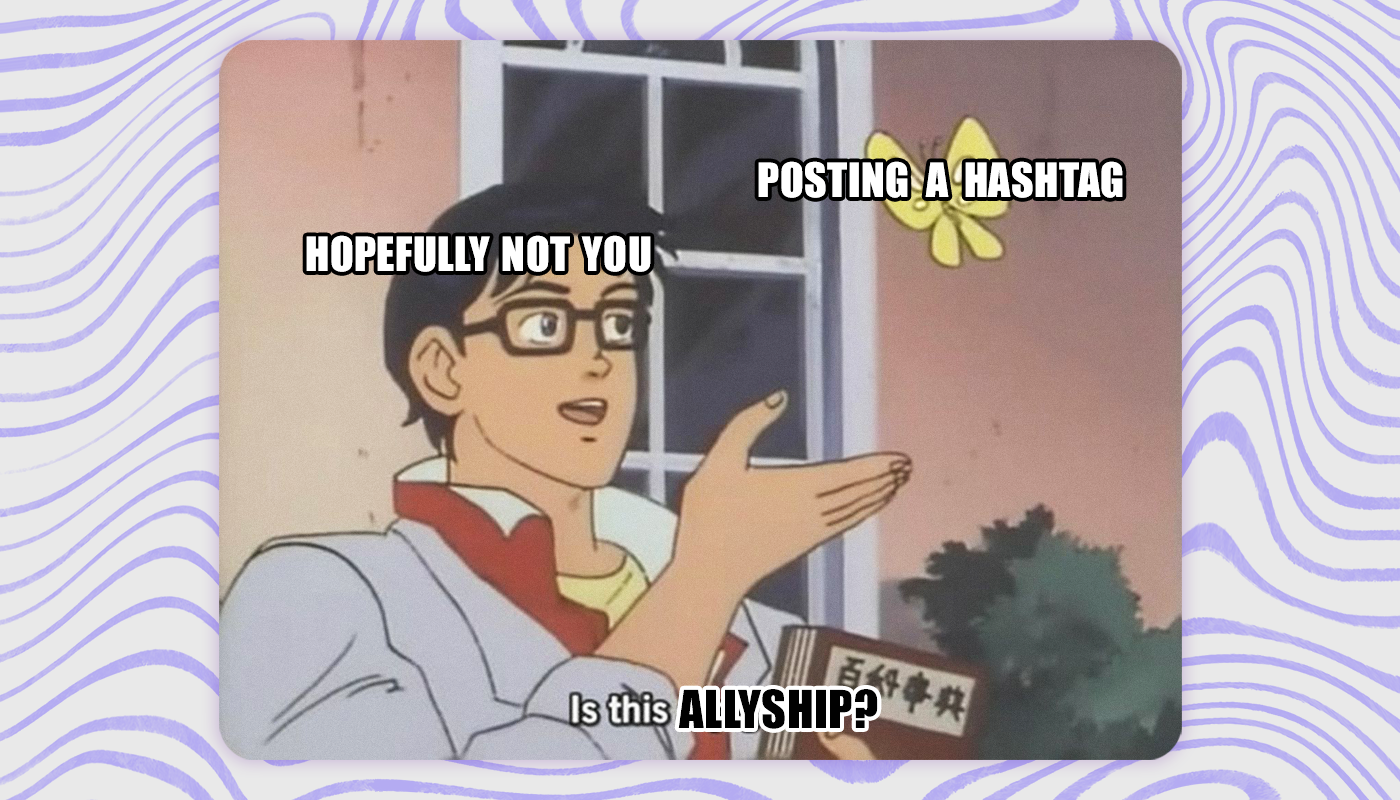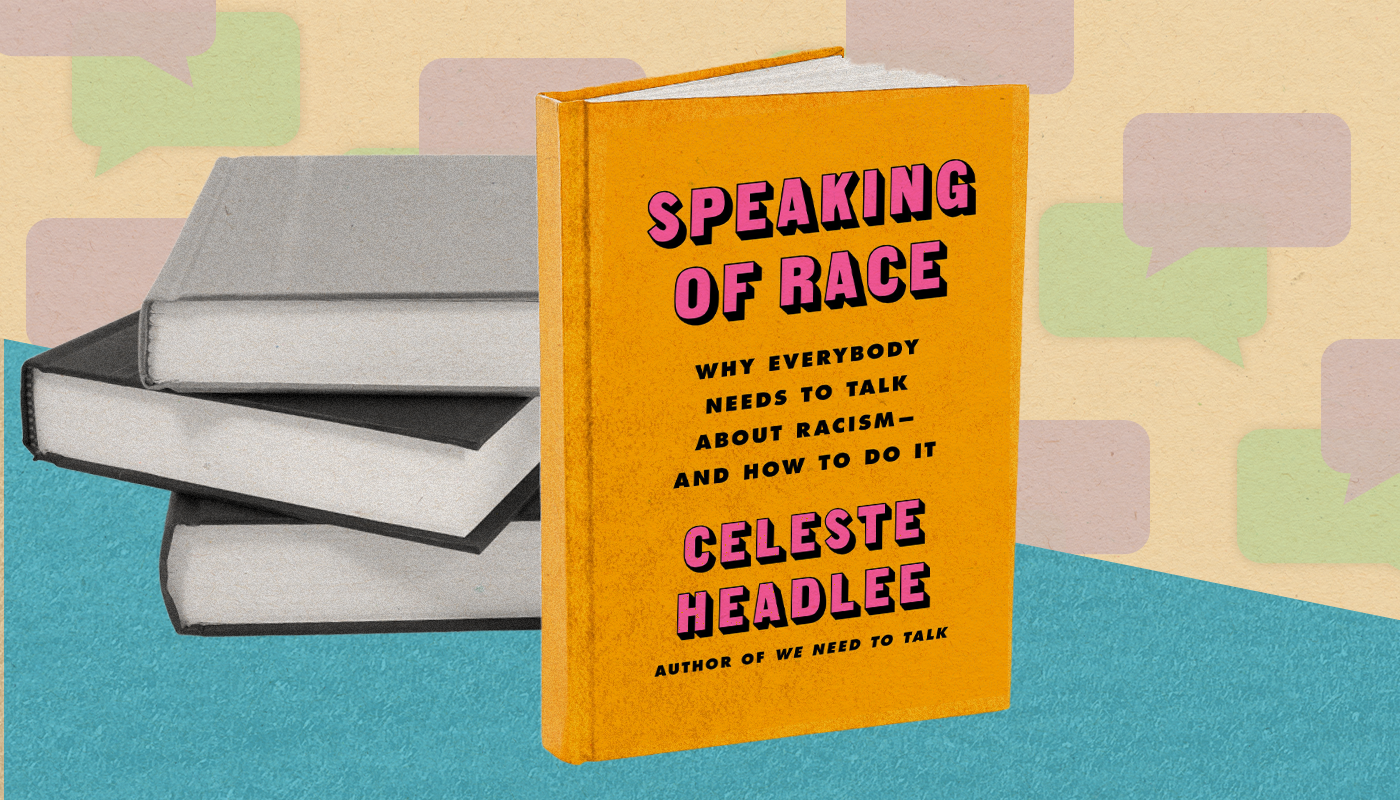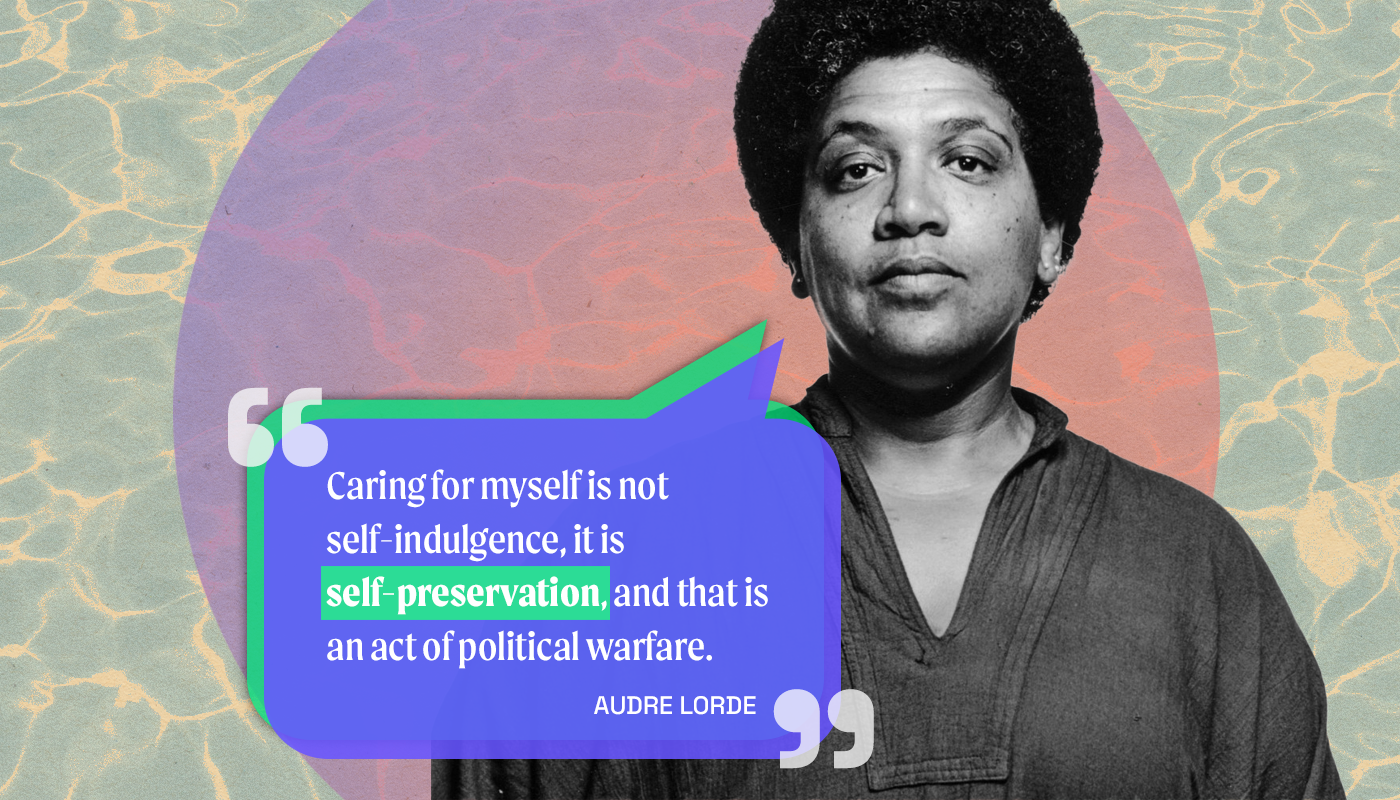Allyship is a verb. Act like it
Let’s support others meaningfully, rather than merely performing it.

So you’ve decided you want to help others. Great! Let’s make sure you’re actually helping.
What is ‘allyship’?
Allyship is a verb, not a noun. You can’t decide to “be an ally” to communities you’re not a part of and be done. It’s an active process of unlearning and re-evaluating. Think of it like this: you can’t decide to be a baseball player, never practice, and keep telling people you’re a baseball player. You have to buy a bat, take lessons, practice, and give up your Saturdays for games.
Allyship
Allyship is an ongoing process of support and intersectional solidarity with communities you’re not necessarily a part of. It involves learning, listening, and action.
To create a better world — where kids don’t grow up feeling excluded because of their race or gender or disability or anything else — we all have a part to play. Trying to support and care for others comes from that healthy place of shared responsibility, but we want to be careful we’re helping rather than inadvertently harming.

of people of color are on guard to protect against bias and unfair treatment within their work teams.
Know when to step back vs. step up
Stepping back
If you’re in support, then you need to be in support — not in the center of the stage. As Rev. Timothy Murphy says, “Being an ally is not an identity. It’s a relationship, one where you take the backseat and let those most affected by the issue drive.” Are you here to help or boost your own ego? Take some time to think about your own position and your identities by using a toolkit and understanding intersectionality. For instance, I’m a Chinese American able-bodied queer woman. I want to step back and listen during conversations about disability or the experiences of Black Americans, but I’d appreciate a white colleague giving me the floor on being Asian American.
Hack
Consider your own identities — what topics can you personally speak to? Can you use your identity to elevate others?
Stepping up
On the flip side, recognizing your own position can help you understand when to step up. Your identity might allow you to speak up when someone else can’t, as Product Manager Cherie explains on TikTok on her experience as a woman in the tech industry. Maybe you’re in a more senior position in your company, and your colleague is sexist towards an intern. You probably have more power to do something compared to the intern — and you should! It’s the idea kids are taught in schools: if you see someone being bullied, don’t be a bystander and pretend it didn’t happen.
@cherie.brooke Women are more likely to be interrupted in male dominated environments🙅🏻♀️ Here’s how allies can help #womeninstem #techtok #girlswhocode #tech
Stepping up can also help alleviate labor. It’s exhausting and dehumanizing to constantly try to convince others why you deserve basic rights and respect. If you’re not personally affected, it can take less of a toll on you to step up to bat. Once, when I was a college student at UCLA, I took a class where our professor (an older white man) said the N-word. Some students, who were Black, expressed their discomfort, but he only got more belligerent. Other students, who were not Black, spoke up to support the professor, repeating his defense that he didn’t intend any offense. I realized that all the non-Black POC speaking up fell into this latter camp, and I decided to say something, thinking that the vocal support and accountability was the best way I could help, compared to staying silent and listening.
Hack
Should you step back (listen and learn) or step up – how can you best help? Are you taking away space from someone else when you speak up?
@tblizzy If this video makes you upset, it’s probably because it applies to you 🤷🏽♀️ #allyship #allies #whiteally #maleally #malefragility #whitefragility
Educating yourself
One of the great joys of modern life is the Internet, which means that if you wanted to, you would never have to ask another person a question again. Who needs someone to announce incoming storms when you have the Weather app? Not you! Who needs to ask your gay friends what Senators just voted against allowing same-sex couples to adopt? Also not you! Go out there and do your own research to learn and find ways for action. What local organizations can you volunteer for, donate to, or shop from? Are there any bills you can urge your representative to support? As TikToker Tyra Blizzard explains, self-described allies often excel at pointing fingers, but struggle to keep the same energy when they or their friends are called in to reflect. True allyship is taking the time to listen rather than becoming defensive.
The labor of educating you is labor. Sometimes people want to share, and if they do, you can be there with an ear. But sometimes people don’t want to, and texting “Hey! A hate crime against your community just happened, let me know how I can help!” can feel more like a burden than a hug. Be proactive and keep trying. (And if you do ask for help and use a consultant, compensate people fairly and pay them!)
Hack
Be proactive in your own learning process, and then get out there.
Just be careful of doing too much learning and not enough action. To return to our baseball analogy, you can’t read fifty books about baseball, never pick up a bat, and call yourself a player. You also can’t read a bunch of books about anti-racism, never stand up for the Latina women in your workplace when your coworker makes a racist ‘joke’, and think you’ve done a good job. But you can trust that you’re making progress each time you show up. Perhaps you won’t be able to hit the ball right away — you can still choose courage over comfort and step up to the plate.
In the name of thoughtful action, here are five considerations to practice:
- Consider your own identities — what topics can you personally speak to?
- Should you step back (listen and learn) or step up – how can you best help?
- Are you taking away space from someone else when you speak up?
- Can you use your identity to elevate others?
- Be proactive in your own learning process. Then, get out there.







